Given the rapid development of initiatives aimed at helping businesses fight human trafficking, the RESPECT Initiative (comprising Babson College’s Initiative on Human Trafficking and Modern Slavery, the Global Initiative Against Transnational Organized Crime and the International Organization for Migration (IOM)), the Global Business Coalition Against Trafficking (GBCAT), and the United Nations Global Compact through its Action Platform on Decent Work in Global Supply Chains, have identified the urgent need to provide a unified repository of information as a resource to facilitate stakeholders in their engagement with the private sector in the fight against human trafficking.
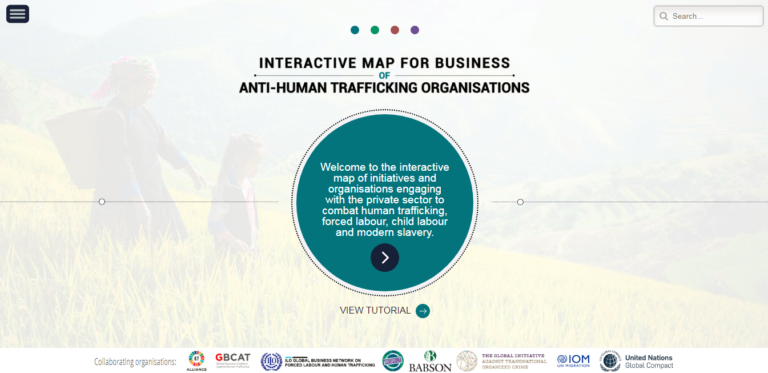
The Interactive Map for Business of Anti-Human Trafficking Organisations (www.modernslaverymap.org) and the accompanying report, which were launched at BT Centre, United Kingdom on 22 May, 2018 (the event was also livestreamed on RESPECT Youtube channel), are designed with the following in mind:
- The private sector – to help companies navigate emerging partners and resources;
- All anti-trafficking organisations; and
- The general public
With 75 organisations and initiatives included, who are working on five human-trafficking-related issues (child labour, forced labour, etc.), covering eleven industries and eight regions, the Interactive Map aims to improve coordination on the eradication of modern slavery, and provides a unique baseline from which existing and newly formed initiatives can move forward.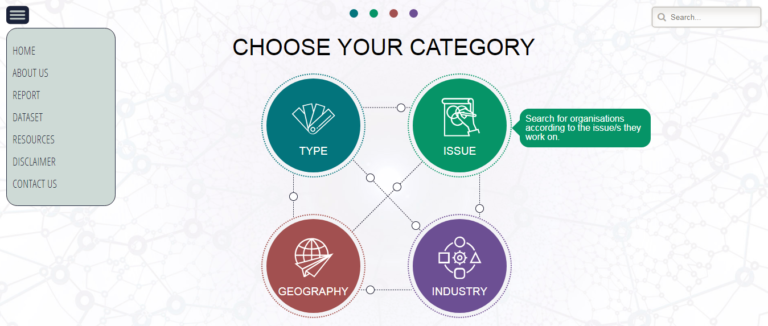
How to use the interactive map
If you are a first-time user, there is an option to take the tutorial on the Homepage.
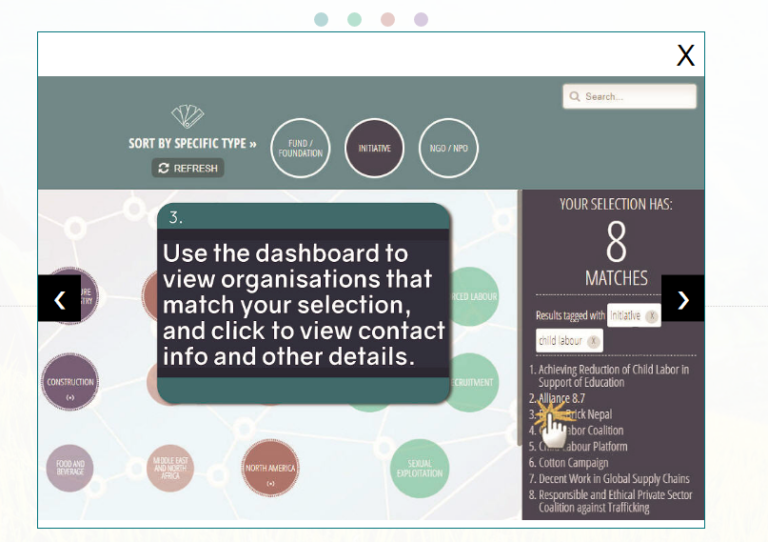
The user can select a dimension among the four categories to start with their search.

Once a category and its specific sub-category is selected, the map will show a general overview/ landscape of the initiatives and/or organisations matched the respective selection.
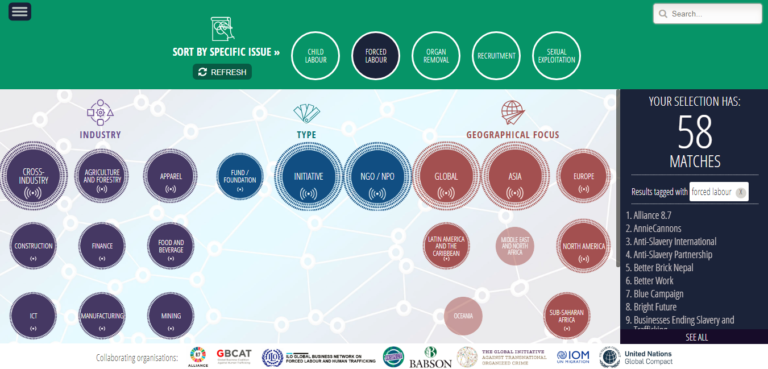
On the dashboard on the right side, the user can also click on a specific initiative/ organisation in order to obtain their details including description and contact information
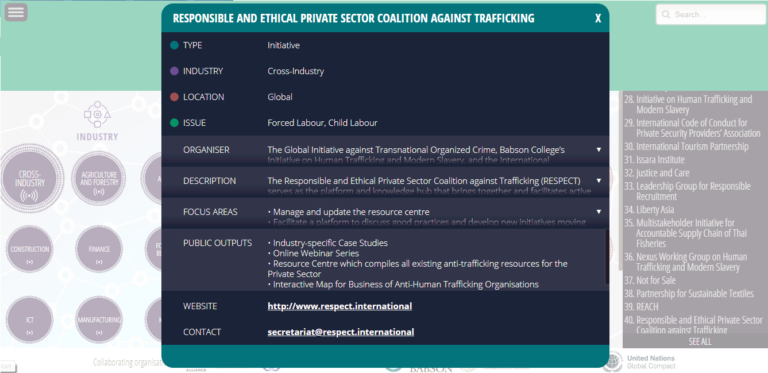
Clicking on the icon on top left hand side will show more information about the Map, including the cooperating organisations, the Map’s methodology, scope and typology, as well as the option to download the raw data used.
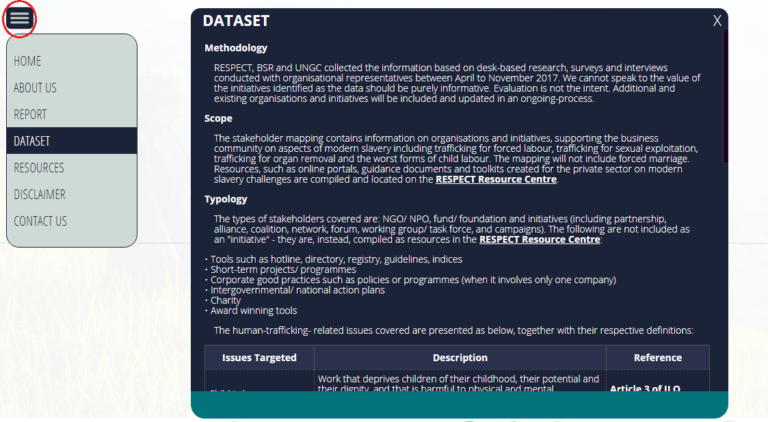
Supporters
This project is also supported by the Alliance 8.7, Business for Social Responsibility (BSR) and the International Labour Organization’s Global Business Network on Forced Labour and Human Trafficking.
Contact details
Should you have any questions regarding the project, data or methodology or know a relevant initiative and/or organisation which works with the private sector and on human trafficking issues, but is not yet included in our data, please write to contact@modernslaverymap.org.
Click here to go to the Interactive Map for Business of Anti-Human Trafficking Organisations Website










